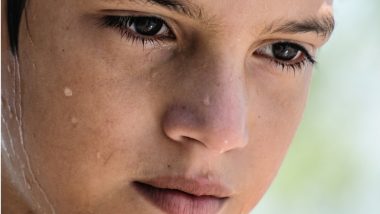With the hottest season of the year setting in, Mumbaikars are bracing themselves to deal with the extremities that summer brings. Although great for a range of activities, sports, vacation time etc., summer brings along a hoard of health problems. Number one on the list is the probability of experiencing a ‘heat stroke’.
What is a Heat Stroke?
A heat stroke is a result of prolonged exposure to extremely high temperatures, and is earmarked as a medical emergency. Usually combined with dehydration, this ultimately leads to a failure of the body's temperature control system. The core body temperature stretches farther than 104 degree Fahrenheit, which is a hallmark symptom of a heat stroke, involving complications in the central nervous system.
A heat stroke generally occurs when the body runs out of its water and salt content, therefore, causing one to stop sweating. Common symptoms include disorientation, confusion, nausea, seizures, loss of consciousness and sometimes coma. Fainting can be regarded as the first sign. Other symptoms may include:
• Throbbing headache
• Dizziness and light-headedness
• Lack of sweating despite the heat
• Red, hot, and dry skin
• Experiencing muscle weakness or cramps
• Nausea and vomiting
• Rapid heartbeat
• Rapid, shallow breathing
• Behavioral changes such as confusion and disorientation
• Fits
• Unconsciousness
How to Treat A Heat Stroke
Following these 6 steps will help treat the affected person efficiently:
1. Once a heat stroke is diagnosed, immediately admit the person to a hospital
2. Till medical aid arrives, shift them to a cool place
3. Get them to lie down and make sure to elevate their feet at a certain height
4. Get them to drink plenty of water. Sports or rehydration drinks can be given if the person is conscious and alert
5. If unconscious, take them to a nearest doctor to start IV fluids
6. Gradually cool the body with ice packs, spray or sponge them with cool water
How to Prevent a Heat Stroke
1. Drink plenty of fluids, especially before and during exercise. It is recommend to drink at least 8 glasses of water every day, fruit juices are add-ons
2. Take frequent cool baths or showers, make sure you are adequately rested
3. Eat light, hydrating and nutritious meals - Cucumber, Watermelon, Coconut, Bell Peppers are high in water content, and should be consumed
4. Wear light-colored and loose clothing, preferably in cotton fabric
5. Sprinkle water over skin or clothes when outdoors for prolonged hours
6. Avoid venturing out in the sun between 11am and 3pm, using an umbrella or a cap is advisable
7. Avoid consuming excess alcohol, sugary drinks and too much caffeine - they cause extreme dehydration
8. Avoid extreme exercise, in a small room or outdoors during hot hours
9. Never leave kids or older adults in a parked car without ventilation
10. Watch for signs of dehydration in kids and elderly people
(This article has been contributed by Dr Sandeep Patil, Chief Intensivist and Physician, Fortis Hospital, Kalyan)
(The above story first appeared on LatestLY on Apr 20, 2018 12:34 PM IST. For more news and updates on politics, world, sports, entertainment and lifestyle, log on to our website latestly.com).













 Quickly
Quickly




















